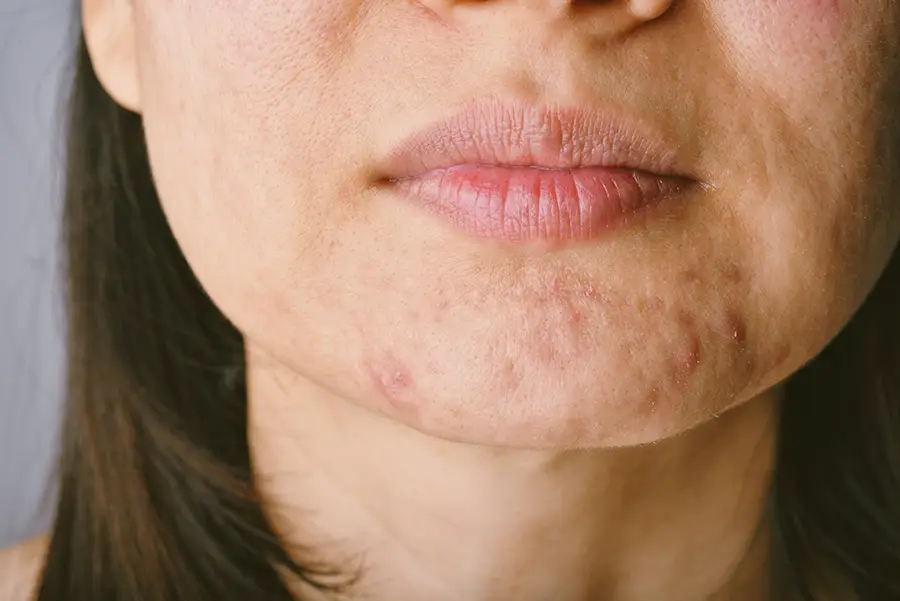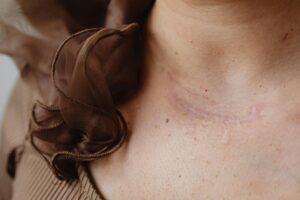When Your Shampoo Might Be Making Things Worse
Scalp acne can make something as simple as washing your hair feel uncomfortable. You might feel sore bumps along your hairline or the back of your head, and sometimes the more you wash, the worse it seems to get.
The truth is, not every shampoo is made for acne-prone scalps. Some are too rich, others too harsh. The right formula can help unclog pores, balance oil, and prevent future breakouts without irritating your scalp.
How Shampoo Helps with Scalp Acne
Shampoos designed for acne-prone scalps target the same core problem as facial acne: clogged pores, excess oil, and bacteria.
Certain medicated shampoos help exfoliate dead skin cells and reduce inflammation around the hair follicles. Others fight yeast or bacteria that can trigger scalp irritation and pimples. The goal is not to dry out the scalp but to restore balance and keep pores clear.
Key Ingredients That Help with Scalp Acne
Salicylic Acid
This beta-hydroxy acid (BHA) gently exfoliates the scalp, removing dead skin and oil buildup that block follicles. It also helps with dandruff and flakiness.
Benzoyl Peroxide
Benzoyl peroxide kills acne-causing bacteria and reduces inflammation. It can bleach fabrics and hair, so rinse carefully and use it once or twice a week as a treatment.
Ketoconazole or Zinc Pyrithione
These antifungal agents target yeast and help calm inflammation. They work well when scalp acne is combined with itchiness or oily dandruff.
Tea Tree Oil
Known for its antibacterial and soothing properties, tea tree oil can reduce redness and discomfort while supporting scalp balance.
Sulfur or Coal Tar
These ingredients help absorb excess oil and soothe stubborn breakouts. They’re useful for acne linked to chronic buildup or irritation.
Ingredients to Avoid
If you have scalp acne, steer clear of products that clog or irritate the scalp.
-
Thick silicones and waxes that trap oil.
-
Coconut oil or cocoa butter in heavy formulas.
-
Strong fragrances or alcohol-based shampoos that strip the scalp.
Even natural or hydrating shampoos can worsen acne if they leave residue behind.
How to Choose the Right Shampoo for Your Scalp
If your scalp is oily:
Look for shampoos with salicylic acid or benzoyl peroxide. They help remove buildup and reduce excess sebum.
If your scalp is itchy or flaky:
Choose zinc pyrithione or ketoconazole shampoos that calm inflammation and fight yeast overgrowth.
If your scalp is sensitive:
Opt for fragrance-free formulas with gentle ingredients like tea tree, aloe vera, or oat extract.
It’s often best to alternate between a medicated shampoo and a mild balancing one to prevent dryness.
How to Use Anti-Acne Shampoos Correctly
-
Apply shampoo directly to the scalp, not just the hair.
-
Massage it in for 3–5 minutes to let the ingredients work.
-
Rinse thoroughly to avoid residue buildup.
-
Use 2–3 times a week depending on scalp type.
-
Avoid applying heavy conditioner near the roots.
Overwashing or underwashing can both worsen scalp acne, so finding the right rhythm for your hair type is key.
Dermatologist-Recommended Shampoos for Scalp Acne
-
Neutrogena T/Sal Therapeutic Shampoo – contains salicylic acid to exfoliate and unclog pores.
-
Nizoral A-D Anti-Dandruff Shampoo – uses ketoconazole to reduce yeast and inflammation.
-
PanOxyl Acne Foaming Wash (5% Benzoyl Peroxide) – can double as a scalp treatment wash to fight bacteria.
-
DHS Zinc Shampoo – uses zinc pyrithione to calm and balance oil production.
-
Paul Mitchell Tea Tree Special Shampoo – refreshing and antibacterial, suitable for mild scalp acne.
If you have colored hair or a sensitive scalp, patch test first before using medicated formulas.
Tips to Prevent Scalp Acne
-
Wash your hair soon after workouts or sweating.
-
Keep hats, brushes, and pillowcases clean.
-
Avoid overusing styling gels or pomades.
-
Choose non-comedogenic leave-in products.
-
Manage stress and maintain a balanced diet to support scalp health.
Small consistent habits matter more than occasional deep cleaning.
Scalp acne can be stubborn, but the right shampoo can make all the difference. Look for ingredients that gently exfoliate, remove oil, and restore balance without drying out your scalp. Consistency is what clears acne, not harsh cleansing.





